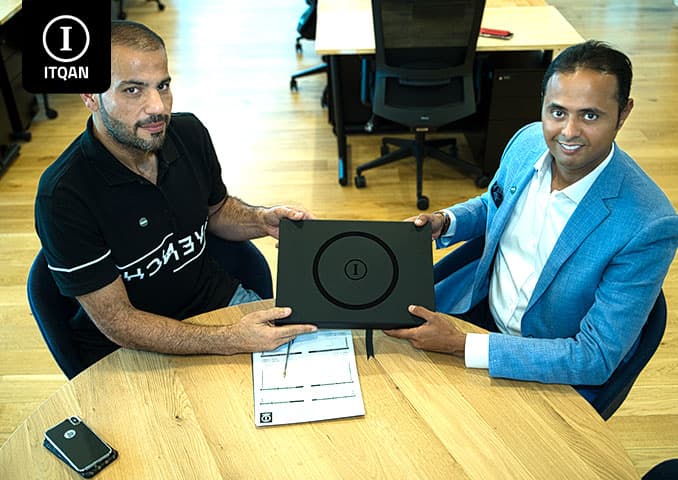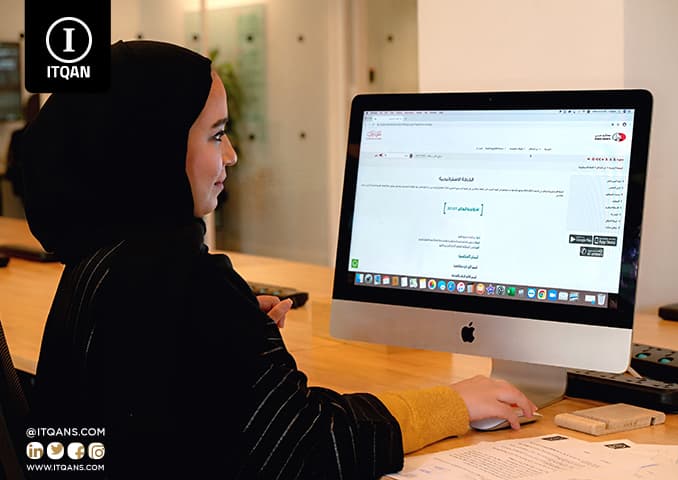Dubai is considered one of the most attractive destinations to establish a company in Dubai for foreigners worldwide, especially for foreigners wishing to enter the international business market. Dubai provides an advanced business environment that supports innovation and growth, making it an ideal location for foreign investors looking to establish their projects in the Middle East region. Thanks to its advanced infrastructure, strategic location, and flexible economic policy, Dubai has become a global center for business and investment.
Establishing a company in Dubai for foreigners requires an understanding of the procedures and legal requirements that characterize this process. Dubai offers several options for opening companies, including free zones that offer tax incentives and privileges related to foreign ownership. Dubai also provides great facilities regarding procedures for registering companies and obtaining licenses, which contributes to accelerating the process of starting work.
Dubai also features a legal system that encourages investment and ensures the protection of investors’ rights, which enhances confidence in the business environment. The government provides a range of support services for new businesses, including legal and business advice, making it easier for foreign investors to adapt to the local market.
Moreover, Dubai’s cultural diversity makes it an ideal destination for foreigners, where they can benefit from a wide network of business opportunities and international relations. In this article, we will discuss the basic steps for establishing a company in Dubai for foreigners, starting with choosing the appropriate type of company, passing through the required legal procedures, all the way to taking advantage of the available incentives.

جدول المحتوى
ToggleMain steps to establish a company in Dubai for foreigners
Establishing a company in Dubai for foreigners requires following several key steps to ensure compliance with local laws and obtaining the necessary licenses. Here’s an overview of the basic steps:
- Determine the type of company and business activity: Choose the type of company you wish to establish, whether it is a limited liability company (LLC), a branch of a foreign company, or a company in a free zone.
Determine what business activity the company will undertake, as each type of activity requires different permits and licenses. - Choosing a company location: Determine the location of the company, whether it is in a free zone or in a non-free zone. Free zones offer benefits such as tax breaks and serviced offices, while non-free zones may require a local partner.
- Trade Name Registration: Choose a trade name that complies with local laws and register it. Make sure the name does not conflict with other registered names.
- Preparing the necessary documents: The required documents may include: passports of the company founders, residence visas, qualifications certificates, office lease contracts, and any other documents required by government agencies.
- Applying for a commercial license: Submit an application for a commercial license from the Department of Economic Development or the body supervising the relevant free zone. The license includes details of the company’s activity, location, and organizational structure.
- Open a company bank account: Open a bank account in the company’s name at a local bank. You may need to provide documents required by the bank.
- Obtaining additional visas and licenses: If you plan to hire employees, you will need to obtain work visas for them. You may also need additional health insurances and permits depending on the company’s activity.
- Office furnishing and equipment: Ensure that the office is equipped in a manner consistent with business requirements and local regulations.
Documents required to establish a company in Dubai
To incorporate a company in Dubai , you will need to submit a set of basic documents that may vary slightly depending on the type of company and its location. Below is a list of the main documents you will need:
- Passports: Passports of all founders, directors and shareholders of the company. Passports must be valid.
- Personal photographs: Recent personal photographs of founders and directors, often in passport format.
- Articles of incorporation: The company’s articles of incorporation and internal regulations, which determine the company’s structure, objectives, and method of management. These documents are prepared and notarized by a lawyer or legal advisor.
- Activity licenses or permits: Business license or permits required according to the type of business activity that the company will undertake.
- Partner Agreements: Agreements between partners detailing their shares in the company and any terms specific to the partnership.
- Proof of Address: An office lease or property ownership contract showing the company’s address in Dubai. You may also need proof of a residential address for the founders.
- Certificates of qualifications: Certificates of educational qualifications or work experience of founders and managers, if required for the type of business.
- Bank Report: A bank report proving the source of funds used to establish the company, which may be required from some banks.
- Proof of identity: Personal ID cards of founders or directors, such as Emirates ID card if they are residents.
- Registration applications: Company registration forms that you fill out and submit to the Department of Economic Development or the relevant authority in the free zone.
Costs related to setting up a company in Dubai
When setting up a company in Dubai , there are several costs you need to take into consideration. These costs include:
- Licensing costs: These include fees related to obtaining a commercial license from the competent authorities, such as the Department of Economic Development or the authority supervising the free zone.
- Office Rent: The cost of renting or purchasing an office, which depends on the location and size of the office.
- Registration costs: include fees associated with registering the company and notarizing legal documents.
- Insurance: Insurance against various risks such as employment insurance and health insurance for employees.
- Opening a bank account: Fees that the bank may charge when opening a bank account in the name of the company.
- Visas and Work Permits: Costs of issuing work and residency visas for founders and employees.
- Legal Consultation: The cost of hiring a legal consultant to prepare legal documents and provide advice.
- Recruitment costs: Include recruitment and training costs if you plan to hire employees.
- Administrative fees: Fees related to various administrative procedures such as authenticating documents and translating documents.
- Office Equipment: The cost of purchasing or renting office equipment and furniture.
- Logistics: The cost of postal, telecommunications and other facilities.
Laws governing foreign investment in Dubai
Foreign investment in Dubai is subject to a set of laws and regulations aimed at regulating and encouraging commercial activity while ensuring the protection of rights and interests. Here’s an overview of the main laws governing foreign investment in Dubai:
- Company Law: Federal Law No. 2 of 2015 regarding commercial companies, which regulates how companies are established and managed in the United Arab Emirates. The law sets requirements for limited liability companies (LLC), public and private joint-stock companies, and other types of companies.
- Foreign Investment Law: Federal Law No. 19 of 2018 regarding Foreign Direct Investment, which regulates foreign investment in the UAE. The law allows foreigners to own 100% of companies in non-strategic activities and limits the sectors in which foreigners can fully invest.
- Free Zones Law: Specifies the laws governing investment in the various free zones in Dubai, such as the Dubai Free Zones Law. This law provides a framework for investors to benefit from tax exemptions and other facilities.
- Tax Laws: The Value Added Tax (VAT) law imposes a tax on goods and services. Although companies in free zones may benefit from certain exemptions, compliance with tax registration may be required for certain activities.
- Labor Laws: Federal Law No. 8 of 1980 regulating labor relations, which regulates the rights and duties of workers and employers, including conditions of employment, leave, and compensation.
- Intellectual Property Protection Laws: Intellectual property rights law that protects trademarks, patents, copyrights, and design rights. It aims to protect innovations and creative works from infringement.
- Anti-Money Laundering Law: Federal Law No. 20 of 2018 regarding combating money laundering and terrorist financing. Establishes procedures and controls to ensure companies comply with financial laws and avoid illegal practices.
- Consumer Protection Laws: Consumer protection law that regulates the rights of consumers and specifies procedures that companies must follow to ensure the provision of safe and fair products and services.

Advantages of establishing a company in Dubai for foreigners
Establishing a company in Dubai offers many advantages to foreigners, making it an attractive destination for business and investment. Here are some key advantages:
- Full Company Ownership: Since the implementation of the Foreign Direct Investment Law, foreigners can own 100% of companies in many business activities, without the need for a local partner.
- Encouraging business environment: Dubai offers an excellence-oriented business environment, with simplified and effective systems for establishing and managing companies, which enhances the ease of starting a business.
- Tax advantages: In many free zones, there are full corporate tax exemptions, including exemption from corporate tax and value-added tax, which reduces financial burdens.
- Advanced Infrastructure: Dubai provides a modern and advanced infrastructure that includes transportation, commercial facilities, and logistics services, which facilitates business management and expansion.
- Access to Global Markets: Dubai’s strategic location between East and West makes it a major connection point for global markets, facilitating international expansion and growth.
- Advanced banking systems: Dubai provides advanced banking systems with a wide range of financial options, making it easier to manage money and facilitate business transactions.
- Intellectual Property Protection: There are strict laws to protect intellectual property, which helps preserve patent rights, trademarks, and other intellectual rights.
- Ease of licensing and registration procedures: Company establishment procedures in Dubai are usually quick and efficient, which reduces the time and effort required to start work.
- Additional incentives and benefits: Many free zones offer additional incentives such as customs exemptions, free utilities, and support services to investors.
- High-quality living: Dubai provides a high standard of living with high-quality educational and health facilities, making it an attractive place to live and work.
At the conclusion of this article about establishing a company in Dubai for foreigners, we find that Dubai remains one of the most attractive destinations for international investors thanks to the dynamic business environment and the many advantages it provides. The process of establishing a company in Dubai for foreigners may seem complicated at first, but it becomes easier when you understand the steps and procedures required. By choosing the appropriate type of legal entity and determining the ideal location, foreign investors can benefit from the advantages that Dubai offers, such as tax facilities, Fast registration, advanced infrastructure. Free zones, for example, provide special incentives such as full ownership by foreigners and exemption from taxes, which enhances the chances of success and growth. Furthermore, Dubai provides significant support to startups through a range of incentive programs and government initiatives aimed at encouraging innovation and attracting investments. . Foreign investors must also be aware of local laws and regulatory requirements to ensure compatibility and compliance with all standards. In collaboration with specialized consulting firms such as Itqan, the incorporation process can be facilitated and the right steps can be ensured from start to finish. Investing time in research and proper planning will have a significant impact on achieving sustainable success.
The most important frequently asked questions about establishing a company in Dubai for foreigners
Can companies in Dubai do e-commerce?
Yes, companies in Dubai can do e-commerce and benefit from the advanced infrastructure in this field.
What are the best sources for information about starting a company in Dubai?
Available sources include official government websites, consulting firms, and commercial centers specialized in supporting new companies.
How can I get help with incorporation procedures?
Consulting companies such as Itqan can be used for specialized assistance with incorporation and licensing procedures.
What are the government support programs for new companies in Dubai?
Dubai offers various support programs that include financing, consulting, and tax incentives for emerging projects.
Can foreigners invest in real estate through companies?
Yes, foreigners can invest in real estate by establishing private companies or through free zones.
What are the procedures necessary to hire employees in Dubai?
Procedures include applying for work visas, registering employees in the social insurance system, and complying with local labor laws.


















